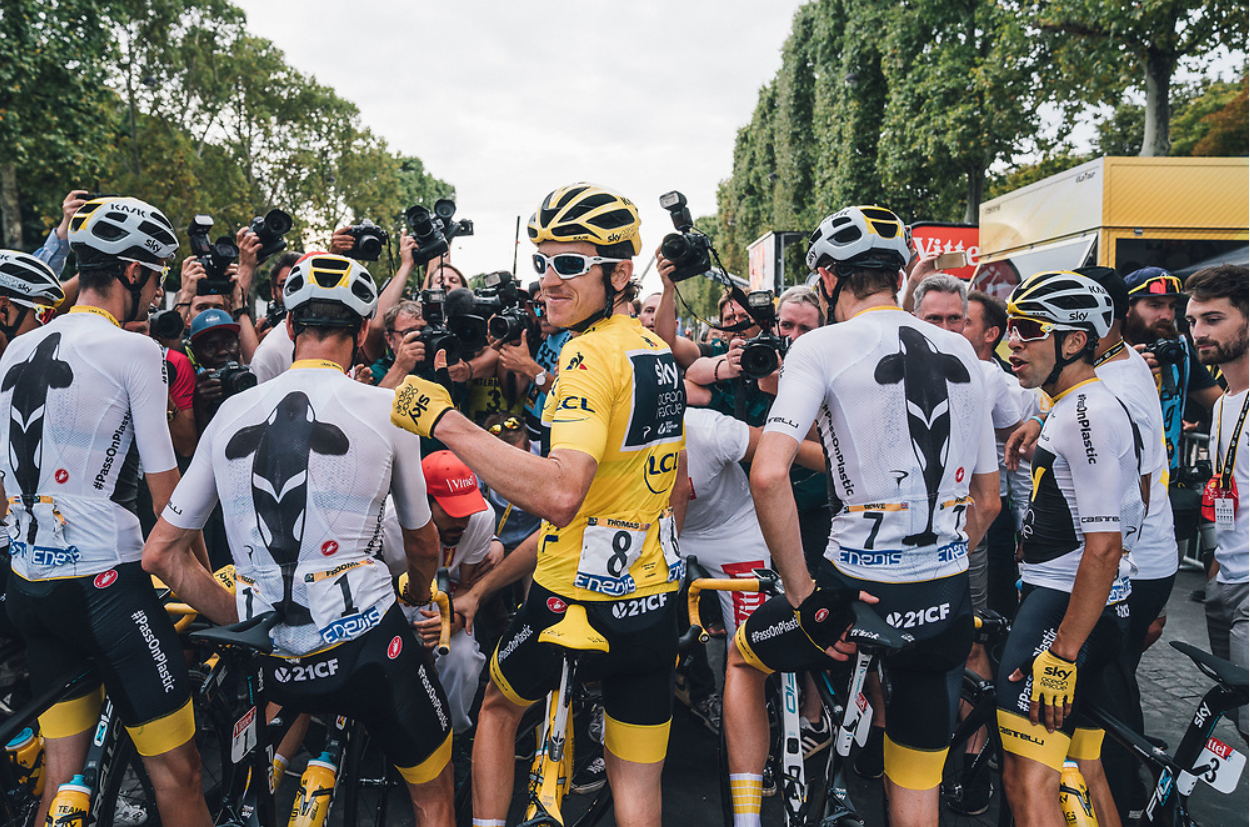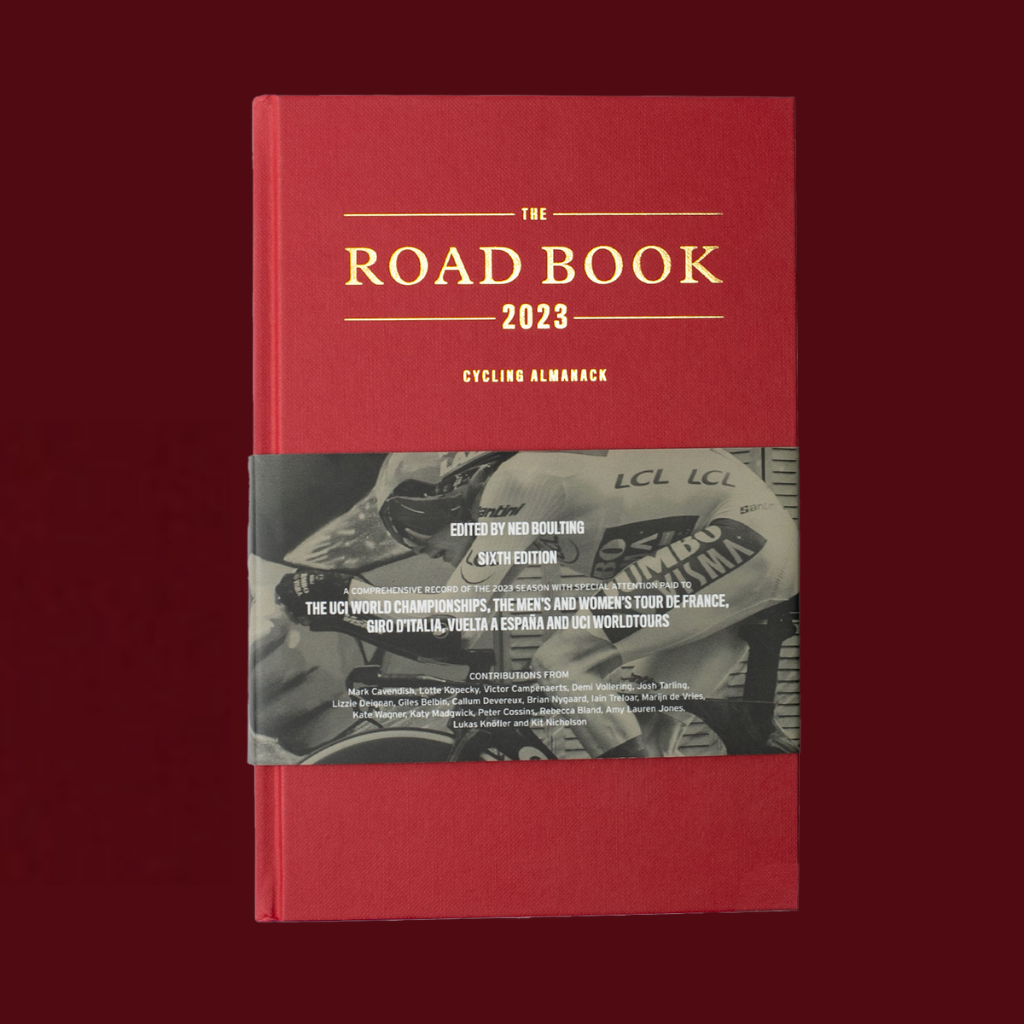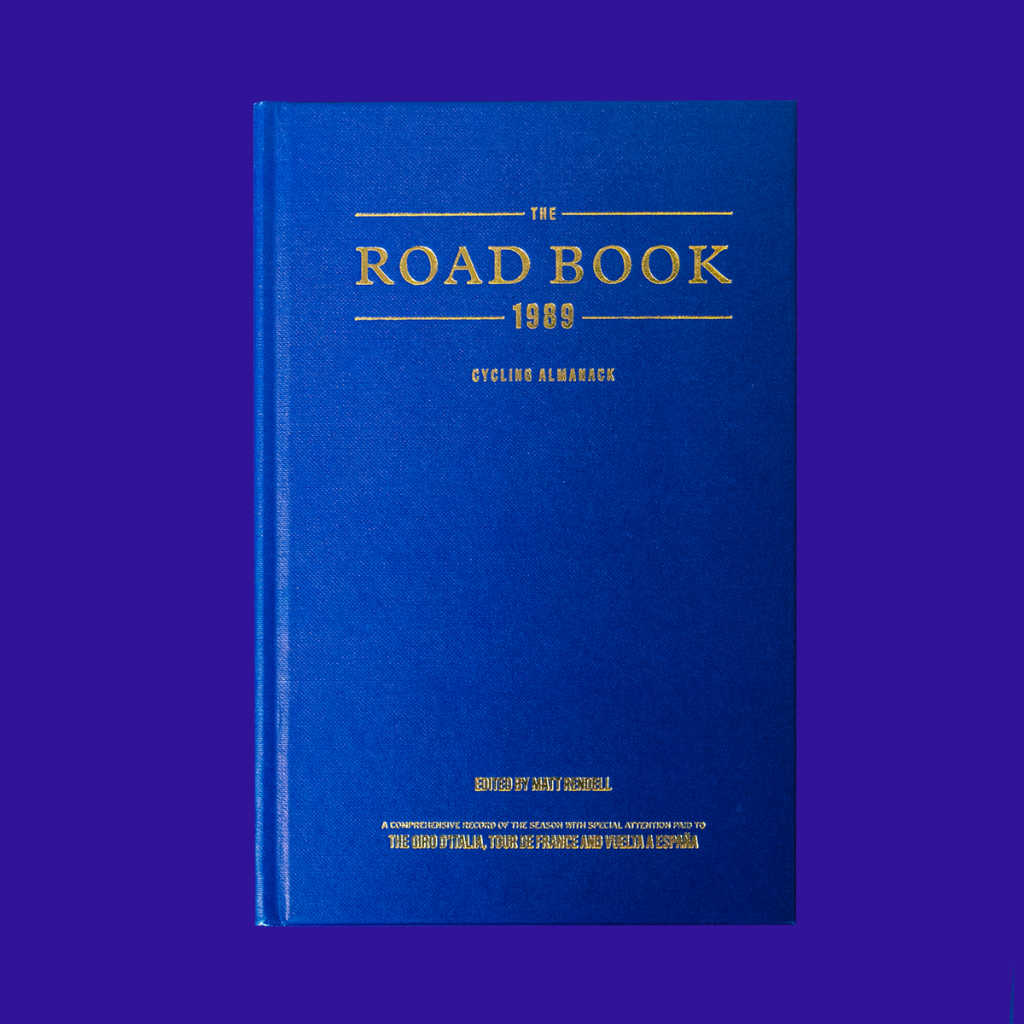Earlier this week, Geraint Thomas (INEOS Grenadiers) announced that come the end of the 2025 season, he would be retiring from professional road racing. The Welshman has been an ever-present fixture at stage races and Grand Tours since 2007 as a vital part of the rise of Team Sky and then INEOS Grenadiers, often offering a refreshingly dry and honest take at the end of each day’s racing.
His palmares includes 3 stage victories at the Tour de France, a plethora of one-week stage race GC titles, including Paris-Nice in 2016, the Critérium du Dauphiné in 2018 and the Volta ao Algarve twice (2015, 2016). However, the crowning glory of Geraint’s career is undoubtedly his appearance in the pages of the very first volume of The Road Book. Geraint penned an excellent ‘In the Winners’ Words’ for our inaugural 2018 edition, covering the small matter of becoming the only Welshman to have ever won the Yellow Jersey.
It is a fascinating read, and we felt there was no better way to celebrate such a cherished rider than to share his account of how he won the Road Book’s very first Male Rider of the Year Award in 2018 (via the small matter of winning the Tour de France).

Team Sky finally reaped the benefit of a two-pronged leadership. For so long, ‘Plan G’ had been subservient to the primary objective of riding for Chris Froome. But when the four-time Tour winner crashed on Stage 1, everything changed. The Tour de France became a genuine Cinderella story for Geraint Thomas.
Deep down, I was hoping to get on the podium.
I knew I was going really well, and I’d done all the work. But I knew that everyone else was going to be at the top of their game – Froomey as well. I was thinking about how much work I was going to have to do. But I knew, from training, that I could do as much if not more than Froomey. So I knew that if I could do that in training, why would it be any different in a race?
It must have been tough for him. Because he was used to being the leader, being in yellow, and everyone helping him. And suddenly… It was probably worse for him to have a teammate in yellow, because he could see someone rubbing it in, across from him on the bus. He was reminded about it every day. He could almost have had a kind of hatred, you know? Well, hatred might be too strong a word, but he’d be like an enemy. Even though he was part of the team. But Froomey never made it awkward.
I won on Alpe d’Huez in the yellow jersey. I took a lot of confidence from that. I was feeling good. Each day my confidence grew. As the race went on I just got more and more confident, and my morale grew. But I think, looking back, that Alpe d’Huez was a big turning point. That was probably my hardest day, which is kind of weird because I won it.
I wanted to get carried away. I’d just won two stages and I was in yellow, you know? It was the stuff of dreams, as a kid. It’s what I’d always dreamed of doing. It’s the biggest bike race in the world. But that’s the thing with this sport: there’s always another day.
I had to stay within the process. It takes almost as much training to be able to do that, mentally, as it does physically. You know, everyone always goes on about the Sky robotic way. I had that mental strategy from the track, that way of thinking about it. It was hard to do. After the Alps I started to think about the Pyrenees, and maybe chipping away and getting a few more seconds. And then I stopped myself: ‘Forget about that. Just think about tomorrow.’ It was hard to do, for sure.
I didn’t want to get emotional in any way. Your performance can fluctuate a lot more if you’re emotional rather than logical, and you have a process. It sounds boring, but it worked out in the end.
I guess it was on the Col de Portet, where I thought: ‘This has actually happened now.’ It was the last mountain top, and I gained time again. It was so hard, but I never felt like I was going to be dropped. I remember feeling, at the top of that climb, almost as if I could do what I wanted.
I don’t think Froomey actually said anything. It was after that stage, I think he just said ‘well done’ and he gave me a hug. It wasn’t actually ever said out loud. But everyone knew that I was going better.
Yeah, it was after then that everyone realised I was the man. It was surreal.
I didn’t realise at the time what people thought of my speech on the Champs Élysées until afterwards, really. I wasn’t nervous. I remember thinking: ‘Oh, maybe I can make people laugh now.’ I just thought, you know, I’ll thank a few people and that. When I was walking up there Sara said to me: ‘Go on, do a mic drop!’ And I said: ‘Behave!’ But then it just sort of happened.
I went for it.
If you enjoyed Geraint’s account, why not pick up a copy of our inaugural edition here. Other contributors to our 2018 edition include: Chris Froome, Tom Southam, Harry Pearson, Chad Haga, Philippa York, Morten Okbo, Marianne Vos and Ned Boulting.








